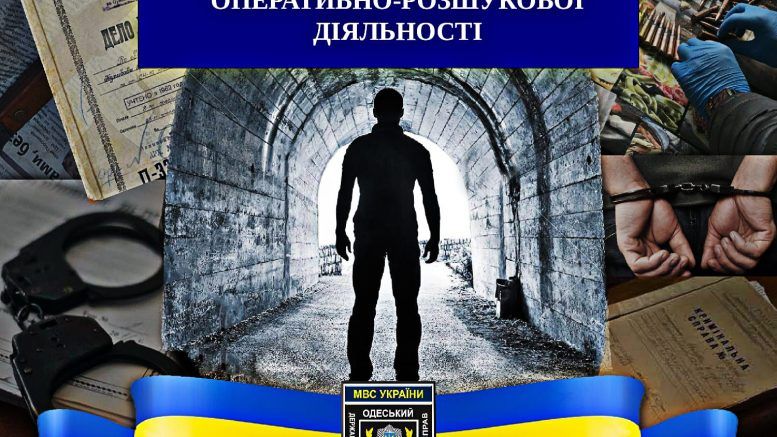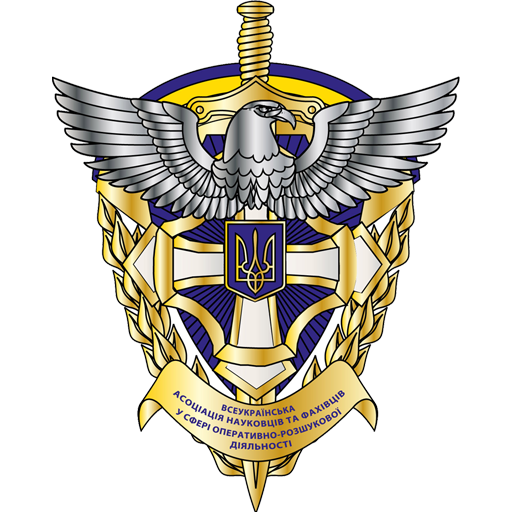
FUTURE OPERATORS ARE TRAINED HERE
Odesa has always been famous for its detectives. Among them: Vitaly von Lange (it was he who stopped the criminal path of the famous Sonya "Golden Pen"), David Kurlyand (the prototype of David Gotsman), Oleksandr Kozachinsky (the author and prototype of the main character of the book "The Green Van"), Osyp Shor (the prototype of Ostap Bender and the personal enemy of Mykhailo Vinnytsky "The Japanese"), Yevhen Petrov (one of the co-authors of the novels "12 Chairs" and "The Golden Calf"), etc.
The work of the operative units of the National Police has always aroused and arouses interest. After all, it is directly related to the detection, suppression and resolution of crimes. At the same time, this work is not only romantic, but also very responsible and requires its representatives to have significant knowledge and skills.
In the South of our country, the forge of personnel for the operational units of the National Police of Ukraine is the Faculty of Training Specialists for Criminal Police Units and its leading unit - the Department of Operational and Investigative Activities.

In training future operatives, the scientific and pedagogical staff of the Department of Operational and Investigative Activities combines theoretical and practical elements of training, because the acquisition of practical skills of operational and investigative activities by cadets is the key to the professional training of future police officers.
Recently, in the methodology of teaching specialized academic disciplines, including "Operational and Investigative Activities", along with traditional methods, there has been an interest in new educational models, technologies and methods that involve the transition from the mechanical accumulation of knowledge to a more pragmatic approach to the real activities of a specialist in a certain field. One of the teaching methods that contributes to the development and acquisition of skills and practical skills is the organization and conduct of quests.


Training platoons are divided into small groups, which are offered real plots of criminal offenses. Under the given circumstances and conditions, the cadets put forward versions in order to solve crimes, outline the optimal list of priority operational and investigative measures at the scene. From among the participants of each group, a conditional “head of the operational unit”, “investigator”, “employees of the operational unit” were determined.

During the lesson, cadets in small groups on a conditional territory solved specific practical tasks related to obtaining information, establishing the location of conditionally stolen items, establishing contact with various individuals, identifying individuals by signs, using technical means, etc. In accordance with the line of conduct chosen by the cadets, the teacher provides additional clarifying conditions that “arise” during the conduct of priority measures. At the final stage of the lesson, group participants must draw up certain official documents.
A variety of quests from the academic discipline “Operational and investigative activities” are literary and historical quests. An example of this is the following:
The police department received two reports of the commission of criminal offenses. Cadets from the faculty of training specialists for criminal police units are involved in the case.
According to the first plot, a citizen discovered the theft of furniture (chairs) in her own home. According to available information, the organizer of the hypothetical "crime" lived in the area specified by the instructor. The cadets were tasked with using theoretical knowledge to determine the "location" of this person.

According to another plot, passers-by noticed that unknown persons had kidnapped a child and were holding him in an unknown place. During the implementation of primary measures, the approximate area and signs of the child were established. The task is to establish the location of the child.

During the lesson, the cadets, in small groups, solved these practical tasks on a conditional territory. According to the first plot (theft of chairs), the place of residence of the “organizer” was established - one of the authors of the famous work “12 Chairs” Yevgeny Petrov (Katayev), who previously lived on Bazarna Street. According to the second plot, the location of the “child” was established - the ancient sculpture “Boy with a Mermaid”, which is located deep in one of the courtyards on Marazliyivska Street.

It should be noted that thanks to educational quests, cadets will be able to more fully master professional knowledge in operational and investigative activities, develop relevant professional and personal qualities, form the ability to independently make decisions in conditions of uncertainty, identify a problem, develop a multi-variant action plan to resolve a certain situation, develop teamwork skills, etc.
